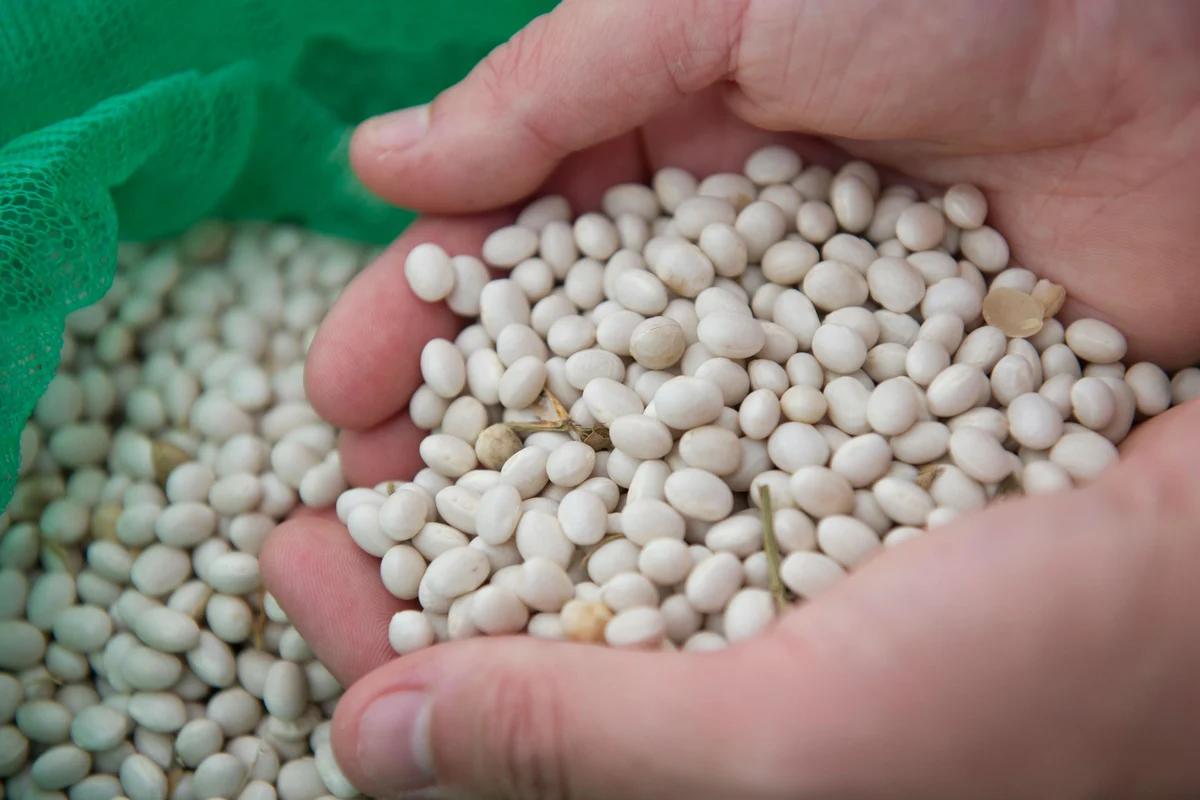By Rebecca Speare-Cole
Copyright standard

Including more beans in school meals and rearranging menus in hospitals are some of the measures that can steer the UK public towards healthier, greener food choices, researchers have found.
A series of studies, published on Thursday, have explored different ways to transform the UK’s food system as part of a major five-year £47.5 million research programme, funded by UK Research and Innovation (UKRI).
In Britain, 15% of deaths are associated with diet, while a third of the country’s carbon emissions are caused by its food system.
Professor Guy Poppy, director of the programme and pro vice-chancellor for research and innovation at the University of Bristol, said climate change, biodiversity loss, obesity and health inequality are “some of the biggest challenges we face in mankind”.
“If you get food right, you can help begin to solve some of these major issues,” he said.
Findings from studies, which have been carried out across the UK, will be presented to the Environment Department (Defra) as it develops its new national food strategy.
Mr Poppy said evidence presents a “golden opportunity” to inform the strategy, which aims to create a healthier, more sustainable food system.
For one project, researchers gathered evidence on the best methods to introduce two varieties of UK-grown beans into school meals.
The team worked with six primary schools in Leicestershire, where school cooks created 54 different bean-based meals over several months, with nearly 2,000 children given the opportunity to try the dishes.
They also engaged with pupils, families, and teachers on the benefits of the high-fibre, high-protein vegetables.
Charlotte Hardman, a professor of psychology of eating behaviour at the University of Liverpool, said: “Beans are really good for us. They’re good for our own health and also the health of the planet.
“But as a nation, our consumption of beans and pulses falls way below recommended levels.”
Findings included children often accepting the vegetables if they were incorporated into already-liked meals, such as bean pizza.
An analysis also suggested that if every person in the UK increased their intake of beans by 34 grams each day, then more than 5,000 deaths could be avoided each year in the UK.
There was also a potential planet-heating carbon emissions saving of 15% if the UK population moved towards UK-grown green beans, the team found.
Another study focused on reshuffling menus from 12 NHS hospitals to nudge patients towards greener lower-fat choices.
They reorganised the menus based on the given preferences of 50 people living in the hospital catchment areas so that healthier, greener dishes were not competing as much with typically more popular, less healthy options.
The modelling found the optimised menus may reduce carbon footprints by up to 29.3% and reduce saturated fat intake among patients by up to 26.5%.
Annika Flynn, senior research associate at the University of Bristol, said: “Rather than penalising healthy options, like lentil curry, by putting them alongside really popular choices, like meaty lasagne, we simply switched around their place on a weekly menu to give them a better chance of being selected.
“The findings are really exciting because they show the menu swapping method could work in different settings and on a large scale.”
A third project worked with socio-culturally diverse disadvantaged communities in Plymouth, Reading, Tower Hamlets and Brighton and Hove, with the aim of co-producing healthy, sustainable food systems for people living in these areas.
In Plymouth, researchers ran a pilot of fruit and vegetable voucher schemes in areas of high deprivation.
Clare Pettinger, a public health associate professor at the University of Plymouth, said they observed important considerations around affordability, access, literacy levels, lack of cooking skills, stigma, long-term illness and disability.
“But the potential impact is there with improved access to fruit and veg, which obviously improves health and wellbeing in lower socio-economic groups,” she said.
Researchers also worked with communities and schools to co-design a new food product – the Plymouth Fish Finger.
This aimed to reduce fish waste, support small boat fishers, and divert underutilised species that would otherwise be wasted into the local fish supply chain.



